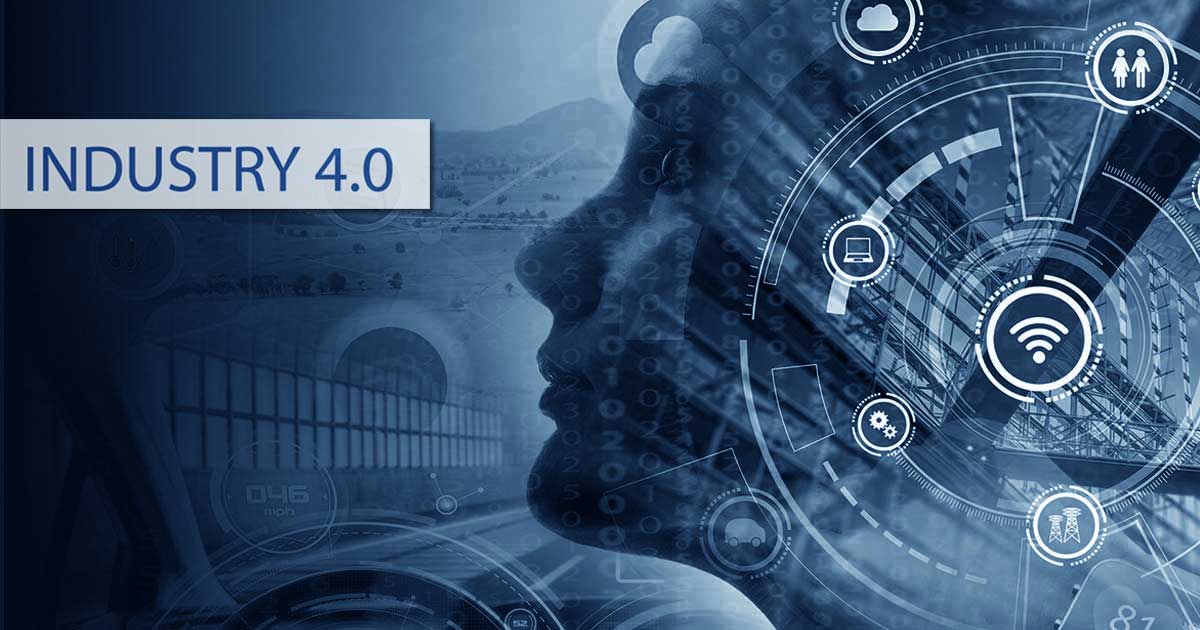FET Blogs


FET Blogs



13 June 2020
The fourth industrial revolution, commonly known as Industry 4.0 is not only changing the way we manufacture but also the way we live. New emerging technologies are making us more productive and are bringing about ease of operation. We, humans, are getting relieved from spending hours on many unproductive tasks that are taken care of by the machines equipped with these fast-emerging technologies. The future belongs to these technologies and to be future-ready and competitive, The blog focuses on emerging technologies and how they are impacting and changing the world.
The first industrial revolution took place when water and steam power were used to mechanize the production processes. And the second one was when the industry started using electricity for mass-scale production and assembly lines.
The technological gains made during the third industrial revolution are being taken forward now in the manufacturing processes with the introduction of many emerging and exponential technologies like the Internet of Things (IoT), Internet of Systems (IOS), Robotic Process Automation (RPA), Artificial Intelligence (AI), and Machine Learning (ML), etc. These technologies have revolutionized the way we manufacture products with machines being interconnected, analyzing data, and making decisions without help from humans. This is what is being termed as the fourth industrial revolution or Industry 4.0.
Let us see few important emerging and exponential technologies are making a big difference to industrial processes and systems and are changing the world.
Artificial intelligence and Machine Learning are the terms coined to describe machines that can use their own experience to make corrections, understand new inputs and adjust accordingly, and perform tasks that would normally require human intelligence. AI and ML do not necessarily apply to the manufacturing industry only. These technologies are used to train computers to use a large amount of data to understand a pattern in it and work accordingly. Machine Learning makes computers learn automatically without any human assistance.
Any equipment working on AI and ML has the capacity to store more data than a human mind. Almost all fields of human activity have started using these technologies.
There are a lot of business processes that are done manually and are repetitive in nature. Robotic Process Automation makes use of computer software or programs to partially or fully automate these processes.
Robot Process Automation technology can do many tedious tasks that humans may find boring. Another benefit of RPA is that it can complete the work faster than humans because it can retrieve the necessary data from the background more easily and quickly.
Every organization wants to protect its systems, networks, and data from any kind of digital attack. This is so because these digital attacks may access, change, or destroy sensitive information. Cybersecurity is the practice of protecting an organization's data and business processes. It consists of technologies and processes which are designed to avert digital attacks.
Cybersecurity is more relevant and essential in today’s digital age as cyber attackers are becoming more active. The number of data breaches is rising continuously. Many organizations have highly sensitive information. For example, armed forces, government departments, medical services, etc. Cyber attackers are always on the lookout for such information and invent new methods to access this information.
In the course of doing their business, organizations are required to transmit a lot of data that may include personal information, financial data, or even strategic plans and their misuse could have a gravely negative impact on the business of the organization. Hence, the importance of cybersecurity has become even more important.
As we all know, cognitive means related to thinking or reasoning, so the term Cognitive System refers to any solution, software, or hardware that can replicate human intelligence such as learning and problem-solving. These systems interact with humans naturally. They are not just programmed. On the contrary, they learn from their interactions with humans and their own experiences.
Today, organizations deal with huge volumes of business information but they don't know how to take full advantage of it. This is where Cognitive Systems come into play. They help organizations to process this data explosion in a structured manner and make effective decisions.
Until now, the data available used to be structured and was not so voluminous. It could be easily detected and analyzed by using simple business tools. But nowadays, the data available is not only huge in volume but is also either unstructured or semi-structured. Expert studies show that currently, more than 80% of the available data is unstructured.
This is where Data Science comes in. Data Science is a field that uses a blend of scientific methods, processes, and advanced algorithms to get useful insights into all kinds of data, be it structured or unstructured. It is a high level of technical skill that enables data professionals to build complex algorithms that help in organizing and analyzing a large amount of data and provide solutions that drive the strategy of their organization. Data Science enables companies to uncover many hidden insights like trends, consumer behavior, etc., which helps them in making smarter business decisions.
Industry 4.0 is more skill-intensive rather than labor-intensive. These technologies are evolving as the most promising career paths for professionals. So, if you are planning to study Engineering, you should focus on these technologies that employers are looking for in Industry 4.0. Jain (Deemed-to-be University), Faculty of Engineering & Technology is pioneering academic hub of India providing all the new- age programs and technologies of industry 4.0 that fulfil all your quest to be future-read.
A1: Companies like Siemens, Bosch, and Tata use Industry 4.0 technologies.
A2: Industry 4.0 will automate tasks and create demand for AI and IoT skills.
A3: Google Scholar describes Industry 4.0 as the integration of smart tech in manufacturing.
Popular Post
17 February 2026
AIE Full Form
10 February 2026
AEIE Full Form
22 January 2026
AE Full Form
16 January 2026
What is Aerospace Engineering?
16 January 2026
What is Chemical Engineering?
Ask an Expert for Free